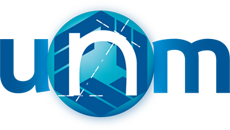
Presentation
About us
UNM, Union de Normalisation de la Mécanique, is the sectorial Standardization Office of the French standardization system in the field of mechanical engineering, steel and rubber industries, operating on behalf of AFNOR. Approved by the Ministry in charge of Industry, the domain of UNM standardization office is covering material, products and techniques derived from mechanical engineering, steel, metal working and elastomer processing industries(excluding tires), and welding and related applications.
As a non-profit-making association, UNM, within its terms of reference, prepares the French NF standards and takes part in the development of European EN and International ISO standards which give access to the above industries' markets. Therefore, in its field, UNM is the gateway to European and International standardization work for French companies and other key players in standardization.
UNM does not prepare standards for its own needs; it provides support to experts who take part in the work of its committees. Indeed, Standardization is a collective work that takes place in standardization committees, bodies composed of experts representing the different socio-economic partners interested in the covered topics. Within the standardization committees, the experts bring their experience, wishes, and needs, and therefore contribute to the development of normative documents which are intended for them. The standardization office only provides its knowledge of standardization, and the necessary logistics, and ensures that normative documents are published for the benefit of the experts (manufacturers, authorities, research, safety or certification organisations…).
UNM manages a collection of approximately 4,000 French standards. The publication and distribution of the standards prepared by UNM are ensured by AFNOR. UNM produces about 250-300 standards per year, which is around 15% of the French annual production published by AFNOR, and is therefore one of the largest sectorial French standardization offices. Updating and maintenance of the collection of standards are a top priority for UNM: nearly 75% of standards published each year are in fact revisions of older standards, allowing the collection of standards for mechanical and rubber to track the art techniques and markets in the best way. Each year, at its General Assembly, UNM publishes its activity report, illustrating precisely the actions conducted in the previous year.
Download UNM activity report (french version only)
UNM subscribes to the French standardizing strategy which aims at building up the most complete collection of French standards taking into account the needs of the present and future users, answering the public interest issues, and rewarding the French know-how internationally.
Download the French Standardization Strategy (french version only)
Therefore, the goal of UNM is to develop and to promote standardization in all its forms in the mechanical engineering and rubber industries, mainly in order to:
- improve the quality and safety of manufactured items and products,
- take into account societal and environmental concerns to minimize the footprint of these products and production processes,
thus to support sustainable economic development of companies in this sector.
The main role of UNM is to prepare and carry out the standardization program required by its members according to their standardizing strategy. At national level, UNM has to manage the preparation of draft standards within its standardization committees, on the basis of preliminary drafts provided by experts. At European and international levels, UNM prepares the French position within the relevant standardization committees and then gives support to the French delegates. UNM regularly provides adequate information on the standardizing procedures and techniques to the French delegates, CEN or ISO working groups' convenors and Chairmen of technical committees, and on the context in which the projects are launched.
Lastly, UNM provides its customers with information on the French, foreign, European, international standards within its scope, as well as on the procedures of the various standardization bodies. UNM is pursuing a policy of quality improvement of its services, in order to increase its relevance on the market. Such an objective implies, in particular, a better understanding of its partners' needs and an increased participation of the industry, customers and other stakeholders.
More than 40 persons are daily at the service of stakeholders in the mechanical engineering, steel and rubber industries; work is carried out within 5 technical departments called "sectors"; each sector is in charge of a specific technical field which includes a number of standardization committees.
UNM became, in November 2003, the first French standardization office certified ISO 9001: 2000. The quality approach was led in UNM like a real company project, focussing on the quality of the services offered, and intended to increase the satisfaction of its customers.
This certification has been constantly confirmed since 2003.
Historical background
After the beginnings of the "Commission Permanente de Standardisation" (1918-1924), French standardization in mechanical engineering really began in February 1927, within the industrial federation called "Fédération des Industries Mécaniques", with the creation of CNM, "Comité de Normalisation de la Mécanique", the forerunner of UNM. This occurred shortly after the establishment of AFNOR, "Association Française de Normalisation", and of ISA, International Standard Association, the ancestor of ISO, in 1926.
CNM started its activities within 5 standardization committees: threads and rivets, technical drawings, fitting, piping, and machine tool elements.
In 1977, to meet the mechanical engineering industry's increasing needs for standards, the "Fédération des Industries Mécaniques (FIM) (Federation of Mechanical engineering and metal working industries) and the Technical Research Centre for Mechanical engineering industries (CETIM), set up the non-profit-making association UNM, Union de Normalisation de la Mécanique, which took over from CNM.
Under the decree of January 26th, 1984, UNM was approved as standardization office for the mechanical engineering by the Ministry of Industry.
In 2002, the governing bodies of UNM, of SNCP "Syndicat national du Caoutchouc et des Polymères" (National Trade Association for Rubber and Polymers) as well as those of the standardizing system (Government Authorities supervising standardization, and AFNOR board), decided to extend the scope of UNM to include standardization for the rubber industry.
In 2006, a similar process conducted with the Institut de Soudure (Welding Institute) resulted in the integration of welding standardization in the scope of UNM. This standardization was previously done in Comité de Normalisation du Soudage, CNS, an internal department of the Welding Institute.
The domain as approved by the Ministry has now become "material products and techniques derived from mechanical engineering, metal working and elastomer processing industries (excluding tires), and welding and related applications".
Decree 2009-697, published in June 2009, has reaffirmed the regulatory framework of the standardization. The approval of each sectorial standardization office has now a maximum duration of 3 years and its renewal is conditioned by an assessment of the activity of the standardization office. The assessment is led by the Comité d'Audit et d'Evaluation (Audit and Evaluation Committee) of AFNOR on the basis of the requirements established by the standard NF X 50-088. This assessment has to be judged positive by the Délégué Interministeriel aux Normes (inter-ministerial delegate for standards) and SQUALPI (service of the Ministry of industry in charge of administrative monitoring of standardization), so that the approval of the office is renewed.
The approval of UNM has been renewed until 01/01/2024.
Evolution of mechanical engineering standards
These jointly define a common vocabulary, dimensions, characteristics, testing methods, and various rules to facilitate exchanges, interchangeability of products, and a reduction in variety to generate economies of scale. The resulting standards constitute reference documents that everyone can choose to apply on a voluntary basis.
In addition to dimensional specifications, other characteristics appeared such as the ability to ensure a function (e.g. mechanical strength) around 1960, then more complex characteristics such as safety of machinery at the end of the 1970s, and today the concept of machine ability to produce parts within given dimensional tolerances.
Right from the start, the mechanical engineering industry recognized the international aspect of its standardization commitment and actively worked in the organizations which were set up (ISA in 1926, then ISO, International organization for standardization, in 1947). The first published ISO standard relates to mechanical engineering: ISO 1, Standard reference temperature for the industrial measurements of length.
European standardization developed at the beginning of the 1960s, and did not at that time really attract the mechanical engineering industry because of the precedence of the international standardization work. It was not until the "European single act" and the "New Approach", instituted in 1985, that impetus was given to a vast European program of standards, which are a major vehicle for achieving European technical harmonization.
Mechanical engineering standardization is constantly on the move, endeavouring to efficiently meet the needs of the industry and of its partners, always open to reconsideration and review, while preserving the basic principles on which it was founded and which are still valid.
